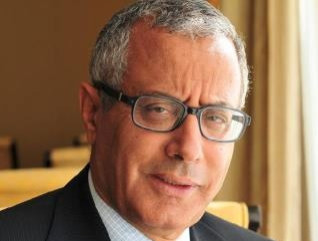New Libyan Prime Minister Ali Zidan Confronts His Biggest Problem

In another attempt at governmental progress in war-torn Libya, longtime diplomat and Moammar Gadhafi critic Ali Zidan was selected as the country’s new prime minister on Sunday.
Zidan was appointed by the General National Congress, or GNC, Libya’s popularly elected transition parliament. One unaffiliated parliamentarian, Saleh Gawdet, told the Washington Post that the GNC had been searching for “a nationalist who does not belong to any party but who served the country during the revolution.”
Zidan once served under Gadhafi -- he was a diplomat to India -- but defected during the 1980s and became a vocal critic of the regime. He has since worked as a human rights lawyer and member of the Libyan opposition, spending much of his time in Geneva, Switzerland.
So far, the new prime minister has struck a note of compromise; he was supported by GNC’s National Forces Alliance, a liberal coalition, but has also promised not to reject the influence of Islamists.
"Islam is our belief system and the source for any jurisprudence, and anything against Shariah is refused," he said in a statement, according to Reuters.
Zidan is the second prime minister to be selected by the GNC. The first was Mustafa Abushagur, whose term was cut short after less than a month in office.
Abushagur was selected the night after a group of extremists launched a violent attack on a U.S. consulate in Benghazi that killed U.S. Ambassador to Libya Christopher Stevens and three other diplomats. He did not enjoy widespread support and ultimately failed to gain parliamentary approval for his cabinet. Abushagur was ousted with a majority GNC vote on Oct. 7.
There is no guarantee that Zidan will have an easier time. His victory was narrow; he won 93 votes, while his closest rival, Muslim Brotherhood-supported candidate Mohammed al-Harari, got 85.
So far, analysts say he shows more political intelligence than did Abushagur, who was a technocrat first and foremost.
With the more-seasoned Zidan at the helm, the government will attempt to hasten its halting progress toward permanence and stability.
The GNC was established in July, in an election that leaned more liberal than other Arab Spring post-revolution polls. The ascension of a prime minister who can wield power for more than a few weeks will be the next important step forward.
Then comes the drafting of a constitution, which has been bogged down by considerations as to whether the constituent assembly will be elected or appointed.
But the biggest challenge facing Libya today has to do with security. The weak transitional government relies heavily on tribal militias to maintain order on the streets, but many of these are beholden to the government only tenuously, and others not at all.
These are the same militias that banded together to wrest power from the regime of Gadhafi last year. Today, they are loath to relinquish what they see as their rightful local sovereignty.
The problem has become intractably thorny. Many of the militant groups that threaten Libyans’ security are, paradoxically, essential to the maintenance of order in various communities. According to a Sunday report from the New York Times, for instance, Ansar al-Sharia, the group accused of perpetrating the Benghazi attack, is still lauded by many Benghazi residents as a necessary peacekeeping force in the city.
Zidan will now be at the forefront of Libya’s efforts to address this national predicament.
“The security file will be my top most priority, because all the problems that Libya suffers from stems from security issues,” he said in a statement. “The government will be an emergency government to solve the crises that the country is going through."
© Copyright IBTimes 2025. All rights reserved.






















